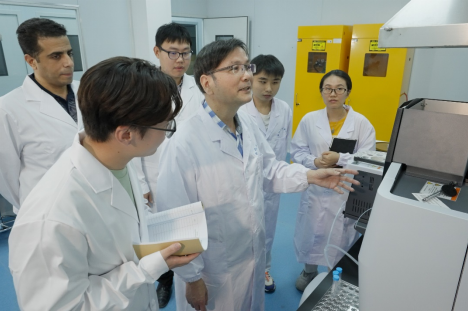Researchers at the University of South China have achieved a breakthrough in cancer treatment by successfully extracting high-purity lead-212 and bismuth-212 nuclides from rare earth minerals, the university’s press center announced on Wednesday.
These nuclides play a critical role in targeted alpha-nuclide therapy (TAT), an advanced cancer treatment method effective against breast, pancreatic, and prostate cancers. The innovation is expected to enhance China’s self-sufficiency in producing vital medical nuclides, addressing long-standing supply limitations.
The research team developed a novel and cost-effective method for isolating lead-212 and bismuth-212 from natural thorium-232 decay chains using a silica-supported anion exchange resin (SiPyR-N4). This method, operating in a halide medium, is over six times faster than traditional resins, enabling efficient separation of short-lived nuclides.
“This development not only resolves the scarcity of these nuclides but also provides a foundation for future advancements,” said Wei Yuezhou, the lead researcher. The team is also working on extracting other medical nuclides, including radium-228, thorium-228, and radium-224.
The findings have been published in major international journals, and the researchers have applied for a national invention patent. This breakthrough marks a significant step in advancing cancer therapies and reducing reliance on imported medical isotopes.


